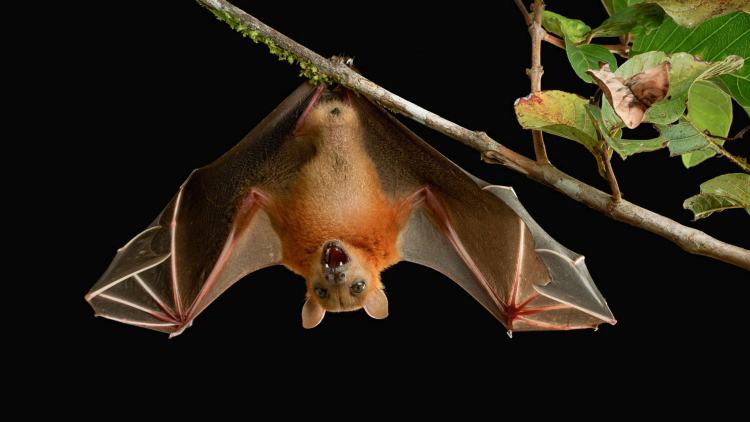Na Na Na ... Batman?

A sassy bat.
‘If you could be any animal, what would you be?’ Redundant question! You can’t think like them! In a famous article Thomas Nagel asked the question: ‘What Is It Like to Be a Bat?’ Many of us frequently imagine being other creatures, especially pets, but Nagel did it with a philosophy-of-mind/metaphysics perspective.
With this particular question he investigated the ‘hard problem of consciousness’: how non-physical subjectivity is lit up by physical states. He used bats as an example to argue that we cannot gain a totality of understanding about other beings’ experiences with the physical sciences.
Specifically, they cannot fully capture first-person, phenomenological subjectivity in third-person objectivity (e.g. with causal mechanisms, functions, material reductions, and so forth). Facts about experience are tied to a point of view and, epistemically, we cannot know what it’s like to be a bat, even if we installed ultrasound, ate insects, webbed our arms, hung upside down, and looked all sassy and stuff—these ‘qualia’ are unique to bats.
Similarly, the physical sciences cannot capture what it’s like to be colour-blind dogs, crafty spiders, chilled-out turtles, and weird, fluffy cats from a first-person perspective—precisely the kind of thing most of us want to imagine through our worldviews!
While objective science can account for many aspects of our experiences, it is unable to account for what it’s like to be something. Even if we ramped down our thought and speech capacities to the levels of lower animals (in a process reminiscent of Hal’s deactivation in 2001: A Space Odyssey (1968): ‘Daisy, Daisy …’ ), we still couldn’t do so. As Nagel writes:
What do you think?
